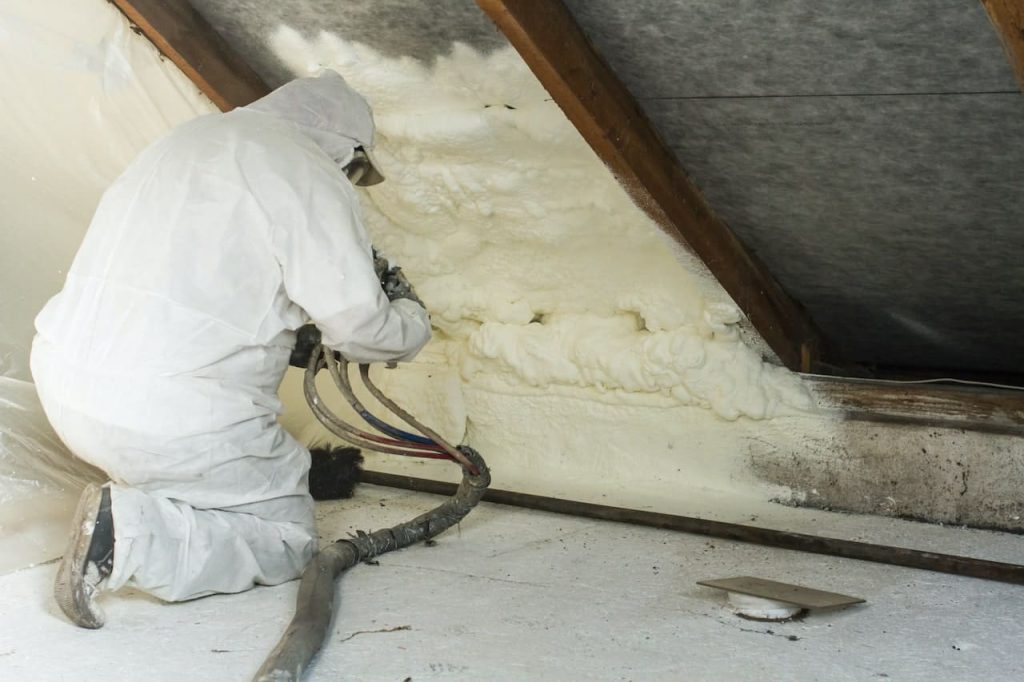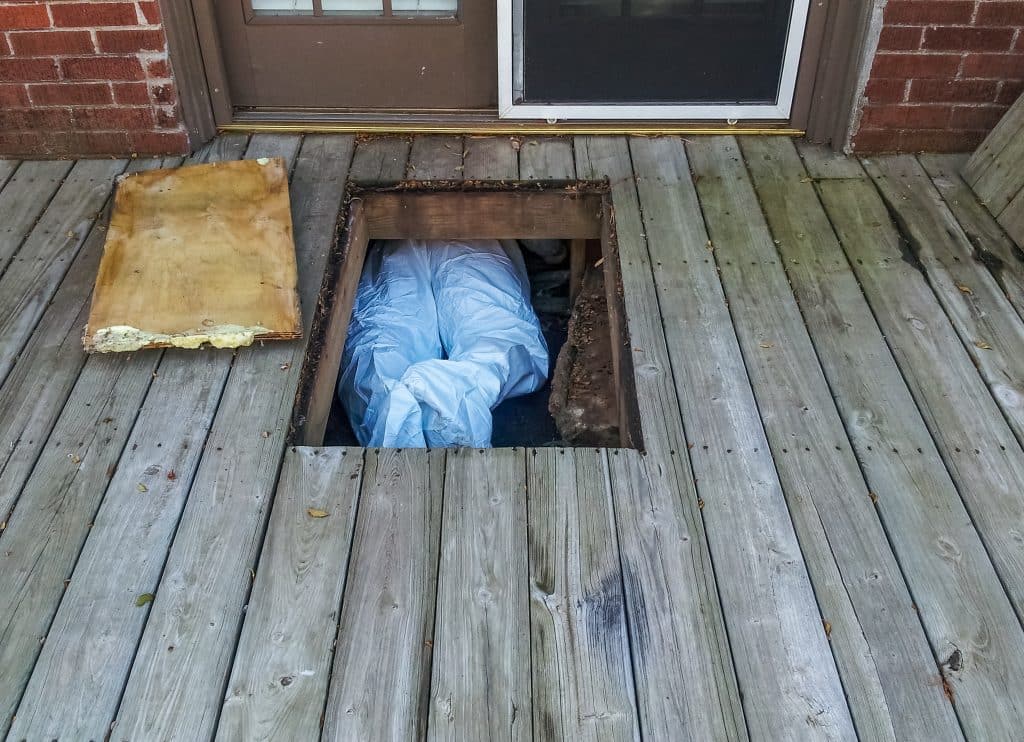Expert Spray Foam Insulation in Decatur, IL Area
Why should I choose Spray Foam Insulation?
Spray foam insulation seals better than other types of insulation. It has a higher R-rating, or thermal resistance rating, than most other types. This quality insulation has an R-value thermal resistance of six per inch, which is substantially higher than most other types of insulation on the market today.
Is easy to install in places like your attic, basement, and crawl space. If you want to reduce your heating costs, you should insulate these areas in your home. It doesn’t take much to conserve heat in the whole house by spraying foam insulation in these hard-to-reach places.
Even if space is tight, we can fit our sprayer in your basement, crawl space, or attic to make sure you’re not dumping money on unnecessary heating expenses.

We offer Open Cell Foam and Closed Cell Foam
Spray Foam Insulation in Your Attic
One of the most efficient ways for families to save money on heating and cooling costs is by insulating their attics. The attic is one of the easiest parts of the home to retrofit, and spray foam is a great product to accomplish the job.
Fiberglass and Cellulose neglect to stop air movement, which means that heat will still be allowed to escape through! Making your home less energy efficient and less comfortable.
We can help you save money and boost energy efficiency by properly installing spray foam in your attic.
Spray Foam Insulation in Your Crawl Space
Crawl spaces are often ignored when it comes to home ownership, which means they also tend to get out of control. From an energy efficiency standpoint, the crawl space is an integral part and should not be ignored.
Extreme temperature differences can lead to marked heat loss, as well as random heat gain. Stopping air movement with spray foam insulation is the best solution available to solve the problem.
Spray Foam Insulation in Your Basement
Concrete has an R-value of only R 1/2 for every 4″, which allows a lot of air to escape reducing your homes energy efficiency.
Typical foundation walls are only 8″ thick, which means that uninsulated basements only have an R-value of R1. Adding is an excellent way to defer heat loss and enhance comfort levels of your home.


